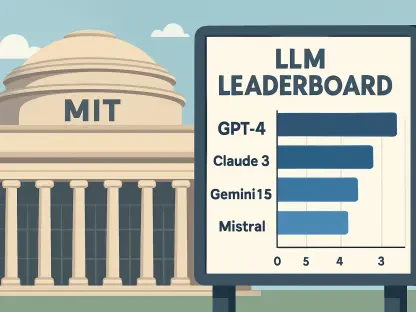In an era where technology reshapes every facet of human experience, the art of storytelling stands at a critical crossroads, challenged by the rapid rise of artificial intelligence. Bestselling author Jess Walter, renowned for his evocative narratives in works like Beautiful Ruins and The Cold Millions, recently captivated an audience at the Oakland Center Founders Ballroom with a profound discussion on this very topic. His talk, blending personal anecdotes with sharp cultural critique, delved into how AI influences creativity and the essence of human connection. Walter’s insights, drawn from a career spanning diverse genres and a forthcoming novel already generating buzz, offered a timely reflection on the balance between technological advancement and the preservation of authentic expression. As society grapples with these evolving tools, his perspective serves as a compelling guide for navigating the intersection of literature and innovation, urging a deeper consideration of what it means to tell stories in a digital age.
The Personal Journey Behind the Pen
Jess Walter’s path to literary acclaim is a testament to resilience and passion, rooted in a working-class upbringing in Spokane, Washington. As a first-generation college student and young father, he faced skepticism from family about pursuing a career in writing, yet found inspiration in the works of Kurt Vonnegut during his formative years. A pivotal moment came when, as a student journalist, he interviewed Vonnegut, an experience that solidified his commitment to crafting narratives that resonate on a deeply human level. This background informs his versatile body of work, from historical fiction to political satire, reflecting a dedication to exploring complex themes. Walter’s personal story underscores the grit required to succeed in a field often seen as impractical, highlighting how individual experiences shape the broader landscape of storytelling and fuel a writer’s unique voice in an increasingly homogenized digital world.
Beyond the personal, Walter’s career embodies a relentless curiosity that defines his approach to literature across genres. His nonfiction, such as Every Knee Shall Bow about the Ruby Ridge incident, alongside fiction exploring love and loss, showcases a refusal to be confined by conventional boundaries. This diversity stems from an early realization that storytelling is not just about entertainment, but a means to challenge readers to see beyond their own perspectives. During his talk, he emphasized the importance of embracing uncertainty, a principle that has guided his creative process. This philosophy stands in stark contrast to the algorithmic predictability often associated with modern technology, positioning literature as a counterbalance to the mechanical nature of AI-generated content. Walter’s journey offers a powerful reminder that the heart of storytelling lies in authentic, lived experiences that no machine can replicate.
AI’s Threat to Creative Authenticity
The rise of artificial intelligence poses significant challenges to the creative arts, a concern Walter articulated with urgency during his recent discussion. He revealed his alarm at discovering that his own books were used without permission to train AI systems, a practice that has sparked legal action from organizations like The Authors Guild. This issue extends far beyond intellectual property, touching on the fundamental nature of human thought and expression. An MIT study cited during the talk highlighted a troubling decline in cognitive engagement among students relying on generative AI for writing tasks, suggesting that such tools may dull critical thinking skills. Walter’s critique framed AI as a potential barrier to the depth and nuance that define meaningful storytelling, raising questions about how society can safeguard originality in an era where content can be mass-produced by algorithms with little regard for authenticity.
Moreover, the societal implications of AI’s encroachment into creative spaces are profound, as Walter pointed out with striking clarity. He likened unchecked reliance on technology to a form of addiction, warning of its isolating effects on individuals and communities. This perspective resonates in a world increasingly dominated by digital interactions, where genuine human connection risks being overshadowed by automated processes. Walter urged aspiring writers and students to establish boundaries with technology, advocating for a mindful approach that prioritizes emotional and intellectual well-being over convenience. His cautionary stance serves as a call to action, encouraging a reevaluation of how tools like AI are integrated into creative practices. By highlighting these broader consequences, the discussion illuminated the urgent need to protect the human essence at the core of storytelling, ensuring it remains a space for genuine exploration rather than mechanical output.
Storytelling as a Human Anchor
At the heart of Walter’s message was a passionate defense of storytelling as an irreplaceable tool for understanding and connecting with others. He described literature as a vast database of human experience, built from authentic voices across time, distinct from the cold aggregation of data by AI systems. His works consistently challenge readers to engage with unfamiliar perspectives, whether through historical narratives or contemporary satire, fostering empathy in a fragmented world. During the event, Walter encapsulated this idea with the notion of “living in the question,” suggesting that the true value of writing lies in exploring uncertainties rather than providing neat resolutions. This approach stands as a powerful antidote to the oversimplification often perpetuated by technology, reinforcing the role of stories in navigating life’s complexities with curiosity and depth.
Walter’s philosophy also extends to practical advice for those entering the creative field, emphasizing the importance of active engagement with the world. He encouraged aspiring writers to remain curious, ask probing questions, and resist the temptation of easy answers, echoing the mentorship he received from literary giants like Vonnegut. This guidance is particularly relevant in a landscape where AI tools promise quick solutions but often lack the emotional resonance of human-crafted narratives. By advocating for a commitment to complexity, Walter positioned storytelling as a vital act of resistance against the dehumanizing tendencies of modern technology. His insights during the talk underscored that literature’s strength lies in its ability to reflect the messy, multifaceted nature of existence, a quality that must be preserved as digital influences grow. This perspective offers a compelling framework for maintaining the integrity of creative expression amidst rapid technological change.
Reflecting on a Call to Preserve Humanity
Looking back on Jess Walter’s impactful discussion at the Oakland Center, the urgency of his message lingered as a powerful reminder of storytelling’s role in society. His personal anecdotes revealed the perseverance required to craft meaningful narratives, while his critique of AI illuminated the risks of losing authentic human expression to automation. The event served as a clarion call to balance technological advancements with a steadfast commitment to creativity and connection. Moving forward, the challenge lies in setting boundaries with tools like AI, ensuring they enhance rather than replace the depth of human thought. Walter’s advocacy for curiosity and complexity provides a roadmap for writers and readers alike to navigate this evolving landscape. By prioritizing engagement over convenience, society can safeguard the unique power of stories to bridge divides and foster understanding, ensuring that the essence of humanity remains at the forefront of artistic endeavors.









